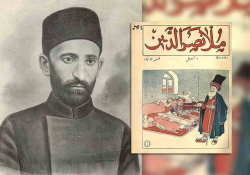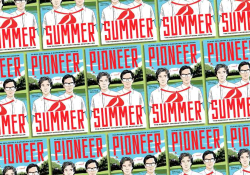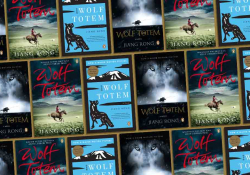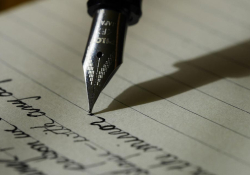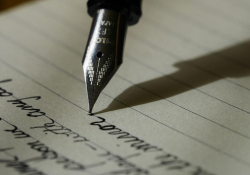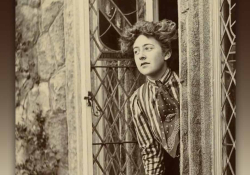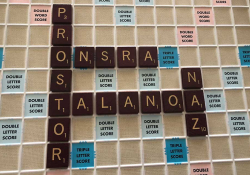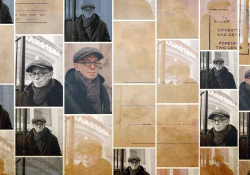Not Just Dragons and Wizards: Translations of Literary Fantasy
Many times when we think of fantasy or science fiction, we think of trite stories of dragons, wizards, and maybe some machine-gunned armies on distant planets. But throughout the world, fantasy and science fiction are used subversively as political commentaries or more broadly to reveal often-overlooked aspects of human nature. Unlike in other works of fiction, the fantastic aspect of fantasy novels can separate readers even more from reality, allowing them to understand in a different and perhaps deeper way the themes of the works. The works below, translated into English from Spanish, Japanese, and Arabic, exemplify fantasy’s ability to subvert our expectations and teach us more about ourselves than we had realized was possible.
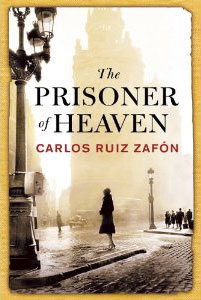 The Prisoner of Heaven
The Prisoner of Heaven
Carlos Ruiz Zafón, tr. Lucia Graves
In 1957 Barcelona, Daniel and Bea Sempere are celebrating their son, Julian’s, first Christmas. A shadow crosses the celebration when a stranger visits the family bookstore, threatening to reveal a decades-old secret of the city. Daniel’s search for the truth takes him back to the 1940s, into the days of Franco’s dictatorship and into a time of turmoil that will endanger their lives and all they love. The Prisoner of Heaven weaves together Zafón’s first two books in the series, The Shadow of the Wind and The Angel’s Game, all in Zafón’s world of the mysterious Cemetery of Forgotten Books.
Born in Barcelona, Carlos Ruiz Zafón has been living in Los Angeles since 1993, but he still writes and publishes his works first in Spanish. His novels have been translated into over forty different languages.
Daughter of the late poet Robert Graves, Lucia Graves grew up speaking English, Spanish, and Catalan. In addition to translating her father’s works into English during his illness and after his death, Graves has translated over thirty volumes by other authors.
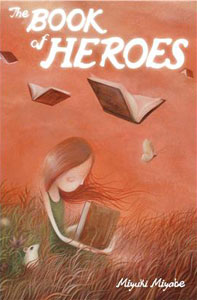 The Book of Heroes
The Book of Heroes
Miyuki Miyabe, tr. Alexander O. Smith
After a fight with bullies at school, Hiroki disappears. Soon after, his sister Yuriko finds The Book of Heroes in his room and learns that a spirit from the book possessed Hiroki. She visits the Nameless Land, then is sent back to Earth to find her brother with the help of Sora, a young monk, and Azu, who is The Book of Heroes incarnated as a mouse. Miyabe’s The Book of Heroes causes readers to contemplate the duty of heroes and how our identities are entwined with the stories told of the world and of ourselves.
Miyuki Miyabe, born in Japan in 1960, is well known for her fantasy novel Brave Story, which has been adapted into films, video games, and a manga. She has also won awards for her mysteries and crime fiction.
Alexander O. Smith has been translating works into English from Japanese since graduating from Harvard with a master’s in Japanese classical literature in 1988. In addition to novels, Smith also translates video games, such as the Final Fantasy games, manga, and song lyrics from Japanese for the English-speaking audience. He has translated two of Miyuki Miyabe’s other novels—ICO: Castle in the Mist and Brave Story.
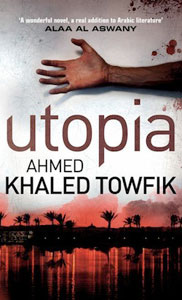 Utopia
Utopia
Ahmed Khaled Towfik, tr. Chip Rossetti
Likened to Burgess’s famed novel A Clockwork Orange, Utopia is the story of two young people living in a dystopic future. The United States has invented its own fuel, launching the Middle East into economic turmoil; Egypt’s middle class has disappeared entirely. Those who live outside Utopia are called the Others, and those who are raised in it are spoiled by so much money that empathy and religious tradition are forgotten. Two of the youth of Utopia venture outside their city to kill an Other, but the world outside Utopia is much more dangerous than they had realized. Towfik’s bleak novel shows us the dark aspects of humanity that are easy to ignore but important to consider as we look to the future.
Ahmed Khaled Towfik was born in Egypt in 1962. His other works include horror and science-fiction novels, and he wrote a series called Fantasia, which introduced young readers to many ideas and authors, including Sikhism and Fyodor Dostoevsky.
Chip Rossetti has been both an acquiring editor and managing editor at several journals and has written for the National Geographic travel guides to Morocco and Egypt. He is currently a doctoral student of Arabic literature at the University of Pennsylvania. In addition to Utopia, he has translated one other novel and a collection of short stories from Arabic into English. Rossetti gives tips for translating from Arabic here.
